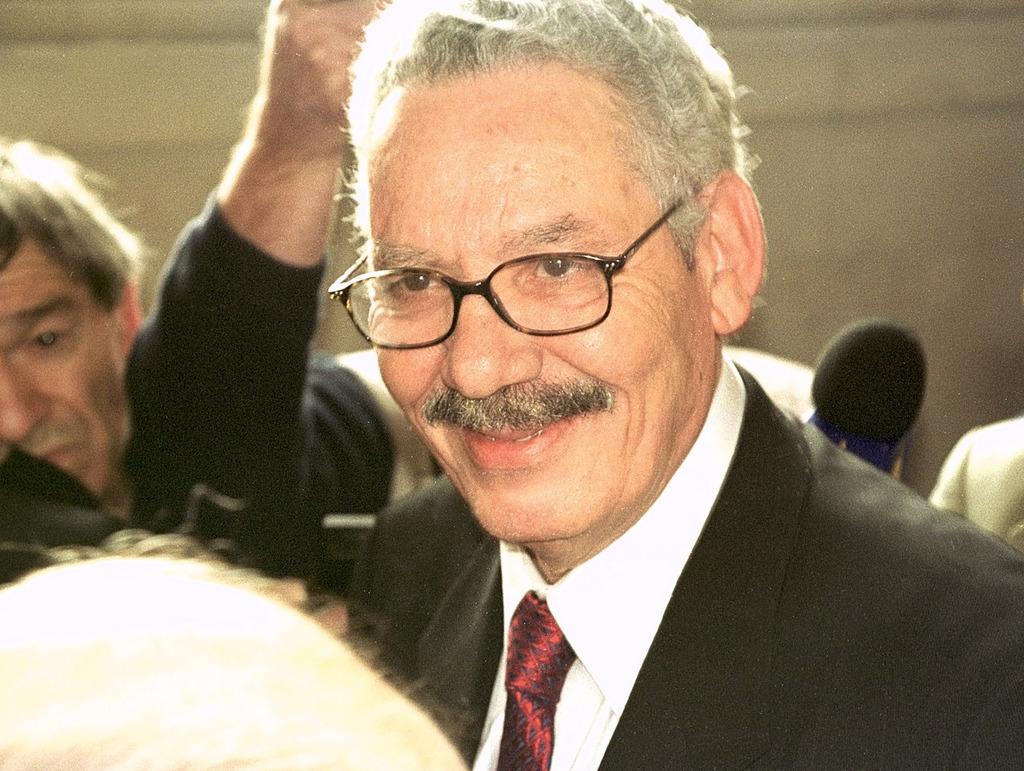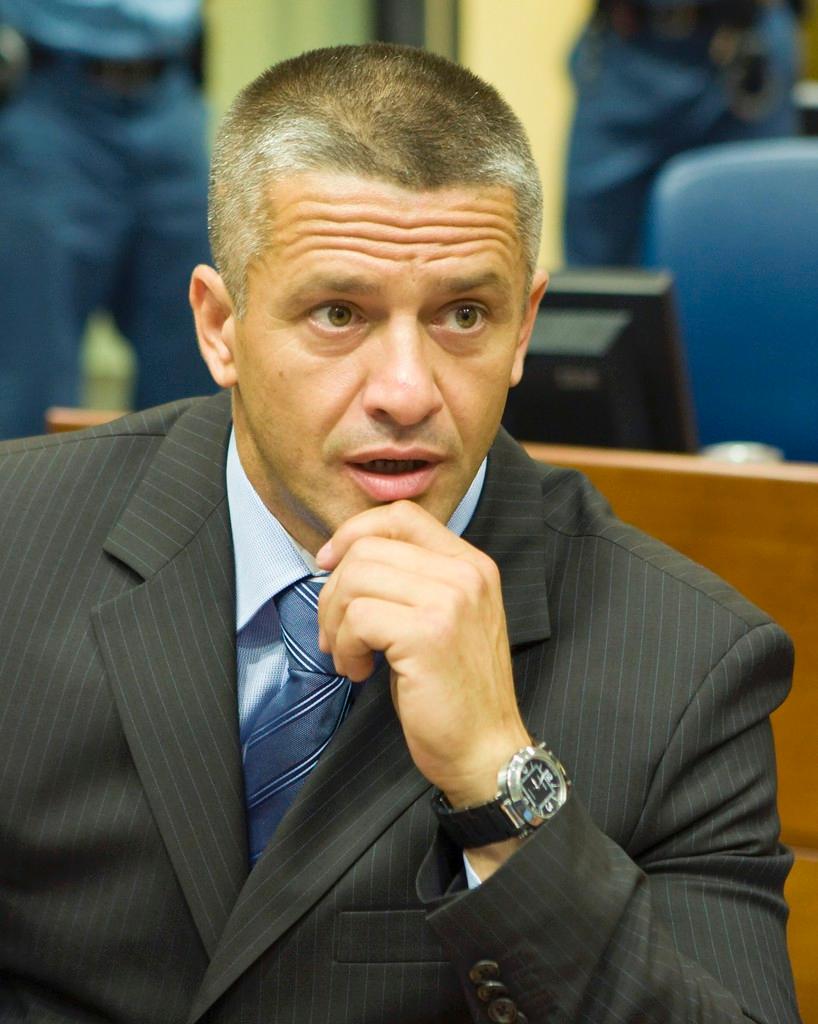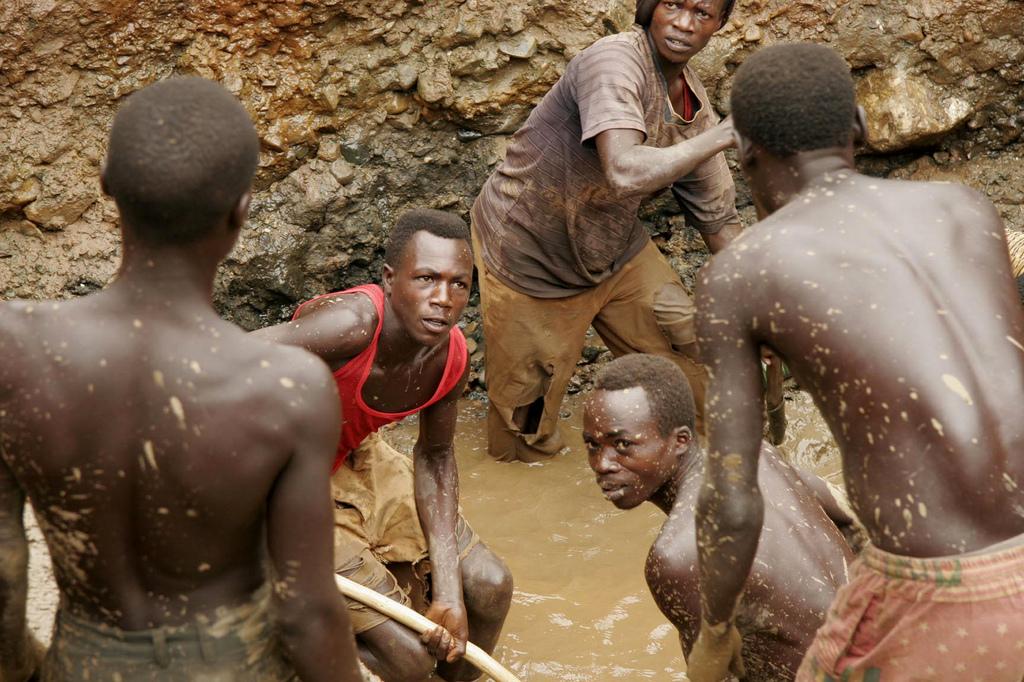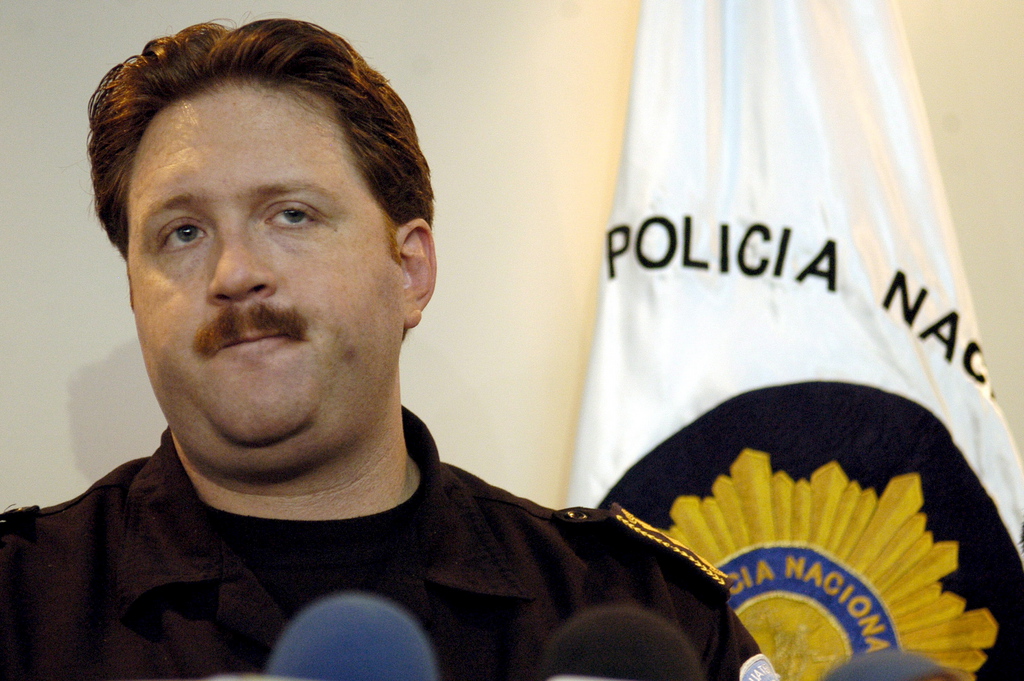NGOs urge Swiss to walk the talk on war criminals

There are suspected perpetrators of war crimes living in Switzerland – from Iraq, Liberia and Rwanda - but the authorities are doing little to bring cases against them. That is the criticism of NGOs and former prosecutor, Dick Marty.
“The government never misses an opportunity to talk about human rights, but if there is just one single 50% post to pursue the suspects of international crimes, that’s ridiculous,” declared former Ticino prosecutor Marty at a news conference this week in Geneva.
The former Swiss senator made the remark after reports that the International Criminal Law Competence Centre is understaffed and overworked. The centre is a specialised unit launched in 2012 by the Office of the Attorney GeneralExternal link to track suspected war criminals living or passing through the Switzerland.
An article in Le Matin Dimanche newspaper claimed last weekend that of the two federal police investigators and three legal experts originally due to work in the unit, only one part-time prosecutor is now assigned to hunt war criminals.
The Geneva-based NGO Track Impunity Always (Trial) External linkand Amnesty Switzerland External linkback these allegations. They have presented a new legal manual entitled The Fight against Impunity under Swiss law: Universal Jurisdiction and International Crimes.
No sentences
Three years ago, observers welcomed the creation of the taskforce as a major step forward enabling Switzerland to join an elite club of 13 states with war crimes unitsExternal link. Some are much larger and more effective than others – the Dutch International Crimes Unit has over 70 experienced investigators.
In 2001, a landmark 14-year sentence was handed down by a Swiss military court to the mayor Fulgence Niyonteze for participation in the Rwanda genocide.
But since then, despite far-reaching legislation (see infobox below) and a new team, no criminal has been sentenced in Switzerland in a case involving universal jurisdiction, which holds that some crimes are so grave that they can be tried anywhere, regardless of where the offences were committed.
“The best way to prevent war crimes is to fight against impunity. Switzerland has suitable legislation but it has a long way to go in terms of assigning the necessary resources,” said Amnesty Switzerland director Manon Schick at the Geneva book launch.
Under control
The Swiss foreign ministry refused to comment on the affair saying the war crimes unit was an independent body. The Office of the Attorney General, however, rejected the criticism.
“We have taken and continue to take all the necessary measures to ensure the International Criminal Law Competence Centre is perfectly capable of operating,” spokesperson Anna Wegelin told swissinfo.ch.
However, she admitted that the five-person unit now reports to a division known as the “Terrorism and International Criminal Law Competence Centres” and that staff members may be asked to assume tasks from both domains.
Marty felt the Attorney General’s office had made a major strategic error to “put all its resources in the fight against terrorism”.
“The best way of combatting the phenomenon is to prevent war crimes,” he said.
But the former senator said it was more than just a question of resources. He said there was a “serious problem” at the attorney general’s office and hinted at a certain reticence to follow up some cases.
“As soon as you deal with international justice cases in Switzerland some members of the establishment say you are wasting your time and you should rather look after your own little garden,” he declared.
Wegelin said a review of the war crimes unit was currently underway to determine if extra staff were needed or even a restructuring.
She added there were currently ten war crimes investigations open, but refused to reveal any details.
Suspects
According to Trial, the lack of war crimes prosecutions does not mean there are no suspects on Swiss territory.
The NGO lists a number of suspects from recent years such as Khaled Nezzar, the former Algerian defence minister suspected of alleged civil war offences, who was arrested in Geneva in 2011 and then released; a case against him is ongoing. The former Sri Lankan general Jagath Dias, who was an ambassador covering Switzerland, was recalled to the capital Colombo in 2011 after a series of war crimes accusations went public.
Trial director Philip Grant said other recent alleged suspects included a deceased Colombian paramilitary, a former Rwandan leader, a jailed ex-Liberian rebel and the head of Saddam Hussein’s secret services, who lives untroubled in the Lake Geneva region.
The NGO argues that with some 600,000 fleeing to Europe this year from war zones in Syria and Iraq, there is an increased probability that some of the people entering could be suspects.
“I’ve twice heard refugees claiming they have bumped into their torturers in the streets of Geneva,” said Grant.
In 2001, Switzerland ratified the Rome Statute treaty, which led to the setting up of the International Criminal Court. Under Swiss penal law, which was adapted and entered into force on January 1, 2011, the Swiss justice system can try people suspected of war crimes, crimes against humanity or genocide committed anywhere in the world, according to the principle of “universal jurisdiction.”
The legal requirement that the accused has close ties to Switzerland – family or secondary residence – were dropped, so now anyone accused of serious war crimes who travels to Switzerland or plans to travel here can be subject to a criminal investigation.
According to the government, the law aims to “guarantee efficiency and transparency in pursuing crimes against humanity and war crimes in Switzerland and to ensure faultless repression of such acts”.
Since July 2012 a new war crimes unit, known as the International Criminal Law Competence Centre, has been attached to the Office of the Attorney General. More than a dozen countries have specialized war crimes units including Belgium, Canada, Croatia, Denmark, France, Germany, the Netherlands, Norway, South Africa, Sweden, Switzerland, the United Kingdom and the United States.
Although universal jurisdiction had been enshrined in international law since 1948, it had been largely ignored until the arrest and attempted extradition of the former Chilean dictator Augusto Pinochet from London in 1988.
Currently, the former dictator of Chad, Hissene Habré, is on trial in Senegal accused of being responsible for the deaths of some 40,000 people during his 1982-1990 rule. It is the first trial in Africa of a universal jurisdiction case.
Spain has been a prominent advocate of universal jurisdiction. Courts in Spain have brought cases against the US over torture allegations at Guantanamo Bay, against China for alleged human rights violations in Tibet, and forced the arrest of Pinochet in London. But after a number of diplomatic rows Spain’s governing People’s Party reformed the laws. In October Spain’s Supreme Court dismissed a case brought in 2008 against 40 Rwandan officials accused of revenge killings following the 1994 genocide.

In compliance with the JTI standards
More: SWI swissinfo.ch certified by the Journalism Trust Initiative





You can find an overview of ongoing debates with our journalists here. Please join us!
If you want to start a conversation about a topic raised in this article or want to report factual errors, email us at english@swissinfo.ch.